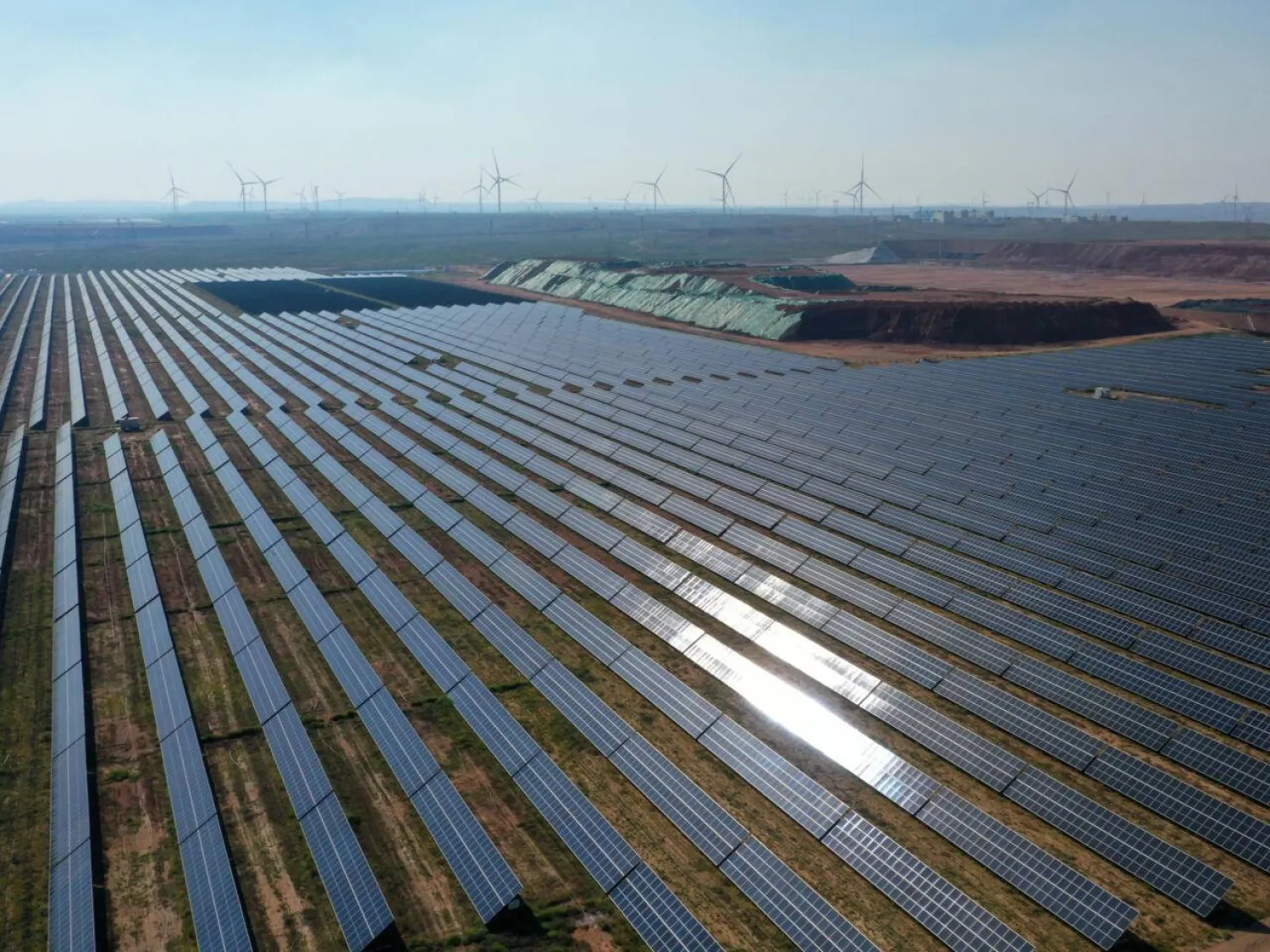A quarter of all the energy China consumes now comes from clean sources, according to research published Thursday, as Beijing rapidly pivots its huge economy to a greener footing.
The country is the world's largest emitter of greenhouse gasses, though has in recent years emerged as a global leader in renewable energy.
It has pledged to bring its emissions of planet-warming carbon dioxide to a peak by 2030 and to net zero by 2060.
A white paper published Thursday said the proportion of "clean energy" in total national consumption rose from 15.5 percent to 26.4 percent over the past decade, according to state news agency Xinhua.
Wind and solar capacity increased by ten times over the same period, Xinhua quoted the document as saying.
It said China was responsible for over 40 percent of annual additions to global renewable energy capacity since 2013.
"China has... achieved historic breakthroughs in green and low-carbon energy development," the white paper said.
Under the Paris climate accord, countries have pledged to cut greenhouse gas emissions with a view to keeping global temperature rises below 1.5 Celsius above pre-industrial levels.
China has won plaudits for its efforts to rapidly ditch polluting energy sources such as coal, but has also resisted calls to act even more ambitiously.
Last week, its wind and solar capacity overshot a target set by President Xi Jinping nearly six years ahead of schedule.
Mismatched development in the country's renewables sector also means a significant amount of energy gets wasted, while turbulence in the domestic solar industry has pushed some firms into dire financial straits.
One Quarter of China's Energy Now Comes from Clean Sources

China said its wind and solar capacity overshot a target set by President Xi Jinping nearly six years ahead of schedule. GREG BAKER / AFP/File

One Quarter of China's Energy Now Comes from Clean Sources

China said its wind and solar capacity overshot a target set by President Xi Jinping nearly six years ahead of schedule. GREG BAKER / AFP/File
لم تشترك بعد
انشئ حساباً خاصاً بك لتحصل على أخبار مخصصة لك ولتتمتع بخاصية حفظ المقالات وتتلقى نشراتنا البريدية المتنوعة







